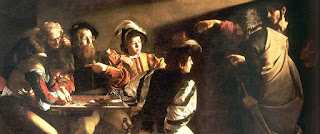This morning on my way to Mass, Adoration, and Confession; I stopped to fill up the SUV. I swiped my card, looked at the screen, and it said: “Please lift handle and select grade.” That’s odd I thought. Normally it would have asked me for more info: credit or debit? Zip code? So I lifted the handle and began to pump. It started to slow down as it approached the $10 mark. It stopped, and I tried to pump more. Nothing. So I printed a receipt. I swiped my card again. Filled up the car. All while the second pump was going my inner mind confronted me with two different voices in my head:
“It’s a gift from God, take it and go.”
“But it’s not your money, not your gas.”
“But you are always praying for blessings, isn’t this what you want?”
“What if it’s a mistake? What if someone else ends up in trouble because of it?”
“Maybe it’s a promotion! Free gas for a random person!”
“Then shouldn’t I at least ask?”
I would like to say that those two voices were not in conflict. I cannot. What I do know is that in the end, I chose to discern God’s voice in all of it. The old, tired cliche “What would Jesus do” was definitely in my mind. I went in, told the lady behind the counter, and she explained that another girl had asked to pump there and had said it did not go through. I paid the $10, and the lady was very thankful, she would have had to come up with the money missing from the drawer at the end of her shift. Sometimes our ego tries to convince us that something is a blessing for us when it's a 'curse' for someone else.
Later I was doing some Lectio Divina before Mass on the readings for today. It struck me how apropos this situation was in light of what had just happened to me. Samuel heard God’s voice calling in the dark. He didn’t know whose voice it was until he began to discern, with the help of Eli, what was going on. This event led to a change in his life and a vocation that has shaped the world as we know it. In this world filled with darkness, the light of Christ still shines forth and has not been extinguished. He is calling us each day to be better than we were the day before, to be more like him. It is crucial that we listen to His voice, but also go to those people who He has chosen to help us as guides in our faith.
It is out of fashion to go to an elder or to a Priest for advice these days. Instead, our youth are taught to only go to their friends and ask for their help with problems. God can indeed speak through our peers, and through our friends. Yet, so can other voices that seek to drown out God’s calling to our authentic selves. That’s why discernment is so necessary! Not just in calling for Vocations in the Church but also in each decision we make in our lives. Only when we find the authentic voice of God, which leaves us with peace and joy, even when it means carrying a cross; will we begin to walk the path to our destiny.
What is our destiny though? The Eucharist reveals to us our genuine self. It is that gift, that Sacramental presence of Christ that helps us become fully human. The Eucharist renews and transforms us into what it is made of. It is through Christ living in us that we become more like Him, and less like the fallen humanity that so often surrounds us. How does that look? The Catholic faith, which the Athanasian Creed says solidly, that unless a man believes fully and firmly in all that it teaches, he cannot be saved. We must learn through faith in Jesus Christ, through the Church that He, Himself established, and be obedient to the words handed on by Him and His disciples. Make frequent use of the Sacraments. Remember that being called to Sainthood is not just for some elite spiritual person, but rather for every person who takes time to listen to the voice of God as Samuel did.
Take time today to go apart, in emulation of Jesus in the Gospel, who rose early in the morning and went to a place of silence for contemplation and prayer. Carve out some time for that intimate communion with God that you too may listen for that still small voice that will guide you to Holiness and Sanctity. Find an Adoration chapel, or sit before the Tabernacle at your Parish. I have a long journey ahead of me even to be close to Holy, but God willing, I am setting one foot in front of the other in the hope of His promises.












